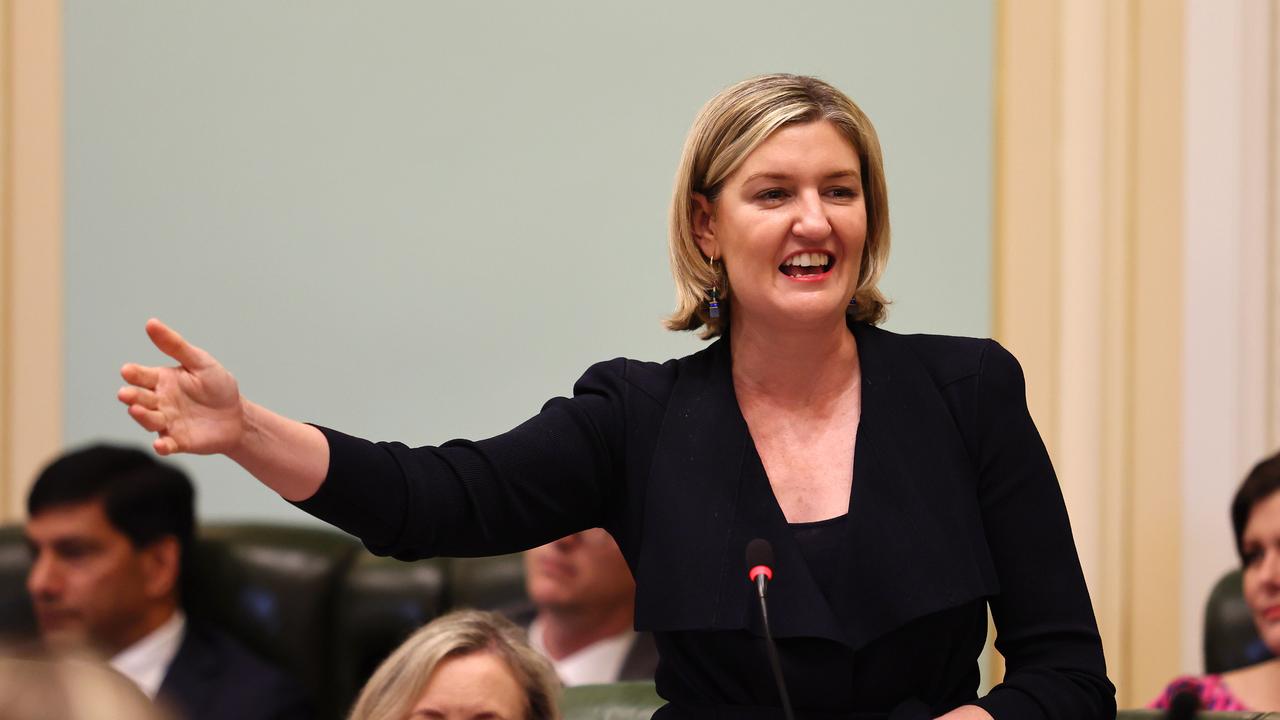Union calls for office staff cap to boost frontline services
Doctors and nurses demand to be put back in control of the state’s hospitals, which are buckling under the weight of “controlling” and “costly” bureaucrats.
Queensland hospitals are buckling under the weight of “controlling” and “costly” bureaucrats, with four public servants on staff for every 10 nurses, a major nurses’ association claims.
Both the Nurses’ Professional Association of Queensland (NPAQ) and the Australian Medical Association Queensland are demanding major overhauls of the state’s crippled health system.
An NPAQ analysis shows there are currently 22,500 non-medical administrators in Queensland at a cost of $2,269,822,500 per annum. It wants a reduction in bureaucrats to a ratio of 1:10 nurses, which is commonplace in Europe, claiming it would save a massive $3.2bn a year.
Under the plan only 4500 non-medical administrators would be required and nurses would be given a $40,000 pay rise.
Separately, the Australian Medical Association Queensland has launched its own push for a governance restructure that puts medics back in charge of collaborative teams and invests in vital doctors, particularly in the regions.
NPAQ president Kara Thomas said money saved on cutting back on administrators could be reinvested to boost those on the frontline.
“You can’t have adequate numbers of professional, well paid nurses and a massive bureaucracy,” she said.
“You have to choose one or the other. If you insist on a massive bureaucracy, nurses will be underpaid, overworked and bullied. And the patients will suffer.”
Health Minister Shannon Fentiman accused the NPAQ of “running a campaign to cut 18,000 health administrators.

“The Miles Government and the Queensland Nurses and Midwives Union don’t support this and Ros Bates, as a member of NPAQ, should also come out and reject it,” she said.
“Nurses should be treating patients, not doing paperwork, and obviously if we have less admin staff more paperwork will fall to nurses.”
The Opposition vowed to put doctors and nurses back in charge if successful on October 26 but are not in favour of forced redundancies.
“The LNP will empower frontline doctors and nurses to deliver local health solutions to local health problems,” an LNP spokesman said.
AMAQ president Nick Yim said the organisation’s Surgical Wait List Roundtable Action Plan was being released ahead of October’s state election to highlight “longer-term solutions for restructuring Queensland Health’s governance frameworks and re-establishing key surgical specialties and services”.
“Queensland Health has not supported regional doctors, nurses and other health professionals who provide the foundation for competent, safe and timely surgical services close to home,” Mr Yim said.
The roundtable found that surgical services are in crisis and the way hospitals are run and funded must be fundamentally reformed to reverse the decline.
“If a regional hospital does not have surgeons or enough anaesthetists, it can’t provide services. Elective surgery is necessary, planned surgery for serious conditions,” Dr Yim said.




